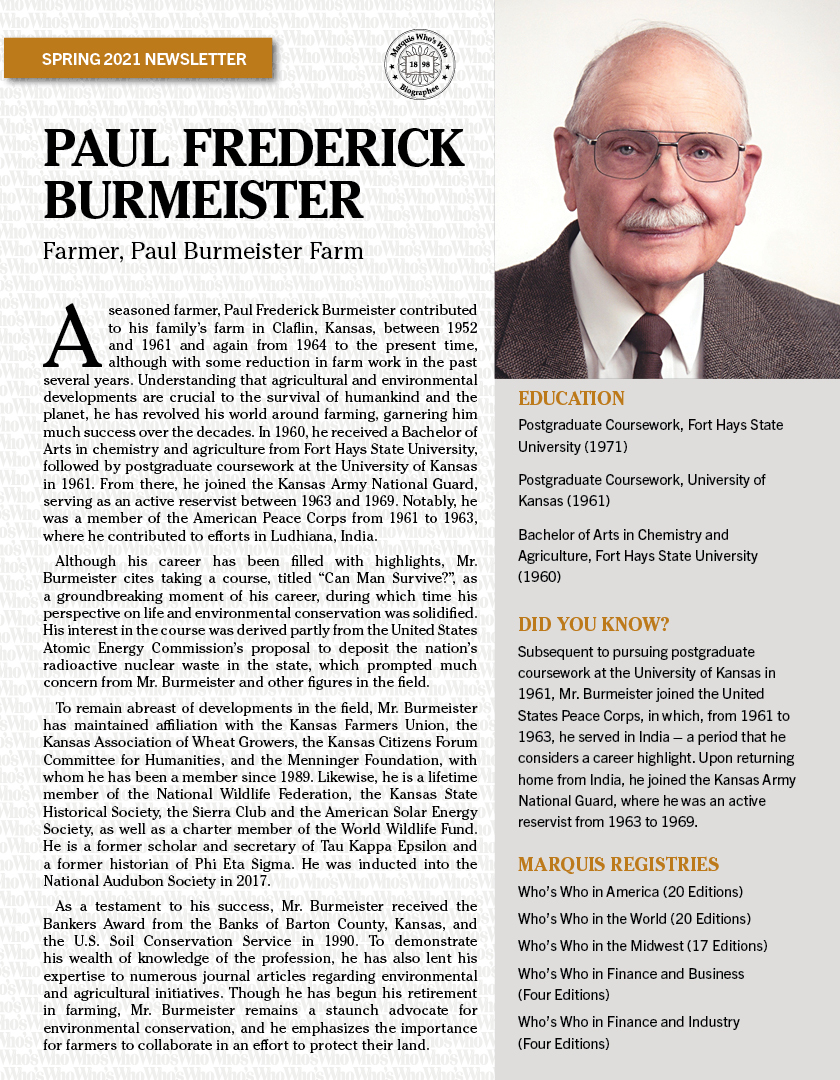
A seasoned farmer, Paul Frederick Burmeister contributed to his family’s farm in Claflin, Kansas, between 1952 and 1961 and again from 1964 to the present time, although with some reduction in farm work in the past several years. Understanding that agricultural and environmental developments are crucial to the survival of humankind and the planet, he has revolved his world around farming, garnering him much success over the decades. In 1960, he received a Bachelor of Arts in chemistry and agriculture from Fort Hays State University, followed by postgraduate coursework at the University of Kansas in 1961. From there, he joined the Kansas Army National Guard, serving as an active reservist between 1963 and 1969. Notably, he was a member of the American Peace Corps from 1961 to 1963, where he contributed to efforts in Ludhiana, India.
Although his career has been filled with highlights, Mr. Burmeister cites taking a course, titled “Can Man Survive?”, as a groundbreaking moment of his career, during which time his perspective on life and environmental conservation was solidified. His interest in the course was derived partly from the United States Atomic Energy Commission’s proposal to deposit the nation’s radioactive nuclear waste in the state, which prompted much concern from Mr. Burmeister and other figures in the field.
To remain abreast of developments in the field, Mr. Burmeister has maintained affiliation with the Kansas Farmers Union, the Kansas Association of Wheat Growers, the Kansas Citizens Forum Committee for Humanities, and the Menninger Foundation, with whom he has been a member since 1989. Likewise, he is a lifetime member of the National Wildlife Federation, the Kansas State Historical Society, the Sierra Club and the American Solar Energy Society, as well as a charter member of the World Wildlife Fund. He is a former scholar and secretary of Tau Kappa Epsilon and a former historian of Phi Eta Sigma. He was inducted into the National Audubon Society in 2017.
As a testament to his success, Mr. Burmeister received the Bankers Award from the Banks of Barton County, Kansas, and the U.S. Soil Conservation Service in 1990. To demonstrate his wealth of knowledge of the profession, he has also lent his expertise to numerous journal articles regarding environmental and agricultural initiatives. Though he has begun his retirement in farming, Mr. Burmeister remains a staunch advocate for environmental conservation, and he emphasizes the importance for farmers to collaborate in an effort to protect their land.